
How To Add Storylines To Your Wooden Jigsaw Puzzle: A Creative Guide
Imagine a wooden jigsaw puzzle where each piece is more than a part of an image; it’s a chapter in a captivating story waiting to
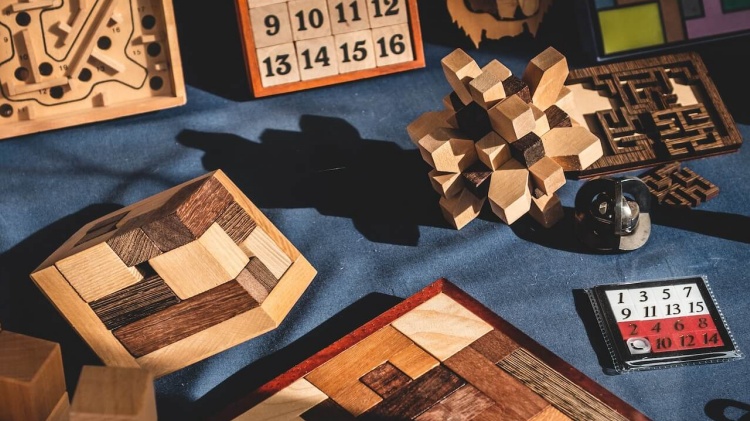
Puzzles have seen a major resurgence in popularity among adults in recent years. From challenging sudoku puzzles to artistic jigsaw puzzles, more and more adults are discovering how enjoyable and rewarding these activities can be. But puzzles provide so much more than just a fun hobby – they deliver some powerful mental health benefits that we are only beginning to understand.
In this blog, we’ll explore the mounting research that reveals how puzzles uniquely stimulate our brains, enhancing cognitive function while also improving mood, reducing stress, and even helping delay the onset of mental decline associated with aging. We’ll hear some inspirational stories from individuals whose love of puzzles has made a difference in their lives and overall mental well-being. And we’ll recommend some great puzzles to try yourself to experience the mindfulness and mental boost they can provide.
So let’s get started piecing together the evidence and advantages of making puzzles a part of adult life and mental health.
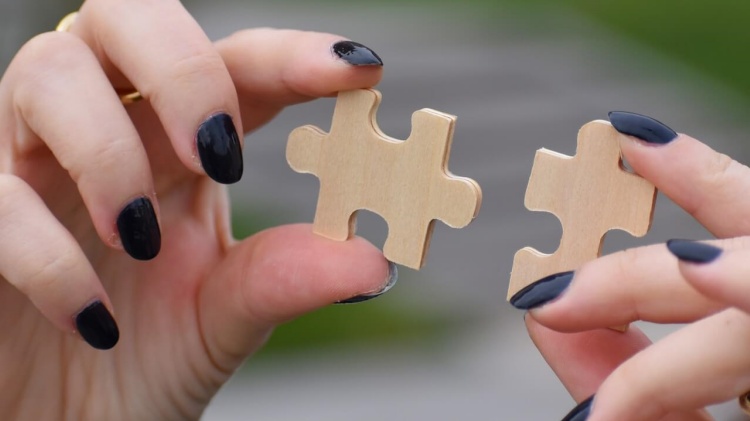
Solving puzzles requires – and enhances – a range of cognitive skills that are crucial for mental acuity across our lifespans. Two key areas puzzles directly stimulate are memory and visual-spatial reasoning.
Studies have shown working puzzles to provide short-term boosts to working memory. The cognitive engagement required enhances our ability to hold information in mind and manipulate it. Completing the mental “workouts” involved in puzzles may also help strengthen neural networks, providing long-term benefits to memory.
Visual-spatial reasoning – our capacity to perceive relationships and patterns between objects – also gets a workout from puzzles. Researchers have found regular jigsaw puzzle solving can significantly improve adults’ abilities to analyze spatial relationships. This advantage in visual-spatial reasoning then transfers to other cognitive skills like logical thinking and reasoning ability.
Science suggests puzzles can also play a role in balancing our emotions and lifting moods. The absorption, mindfulness and sense of control required in puzzles deliver measurable psychological benefits.
Flow state experiences, where we become immersed in focused concentration, activate natural mood-enhancing neurotransmitters like serotonin. Entering into this mentally engaging state by working puzzles can provide an antidepressive effect. Studies even indicate participants choosing to work puzzles when given open leisure time makes significant improvements to overall happiness levels.
The introspection and mindful focus puzzles required may also lower stress and anxiety levels. Research finds activities like sudoku puzzles alter brain connectivity patterns similarly to meditation. Participants report feeling more relaxed and less bothered by stressful thoughts after engaging in puzzles. This stress relief may even produce lower cortisol levels, indicating a physical calming effect.
Working puzzles may also help stave off cognitive decline associated with aging. Explicit training studies indicate skills like visuospatial reasoning – which puzzles target – can be improved with practice at any age. Longitudinal studies demonstrate adults who engage in mentally stimulating leisure activities experience slower rates of cognitive decline in later years.
The specific mental challenge puzzles provide could play a key role in maintaining mental fitness. Using multiple cognitive processes during puzzle-solving may increase cognitive reserve. Tasks requiring focused attention that puzzles demand may strengthen neural networks, protecting against degradation that leads to senility and impaired cognition.
Some research has specifically analyzed the effects on dementia onset. A large study following over 1700 seniors found the risk of dementia decreased by about 30-50% among those regularly playing games like puzzles and cards compared to non-participants. Working puzzles may help delay diseases like Alzheimer’s or related cognitive symptoms. However, more research is still needed in this emerging area.
Our attention spans seem to weaken with our constantly connected world. Small distractions easily break concentration, increasing feelings of anxiety, stress, and fractured productivity. Here too puzzles deliver advantages, requiring disciplined focus and training attention stamina.
Successfully piecing puzzles together demands sustained, close attention to detail. Researchers find participants demonstrate improved attention, concentration and patience after puzzle work. This ability to focus intently carries over as a skill into other mentally demanding tasks.
Studies even indicate attention training with puzzles may produce measurable changes in brain activity and connectivity. FMRI scans show certain areas of the brain activating more post-puzzle play. Networks related to executive function and resolving complex problems show markedly increased connectivity. This neural change reflects improvements in cognitive control and attention span in the immersive process of puzzle assembly drives.
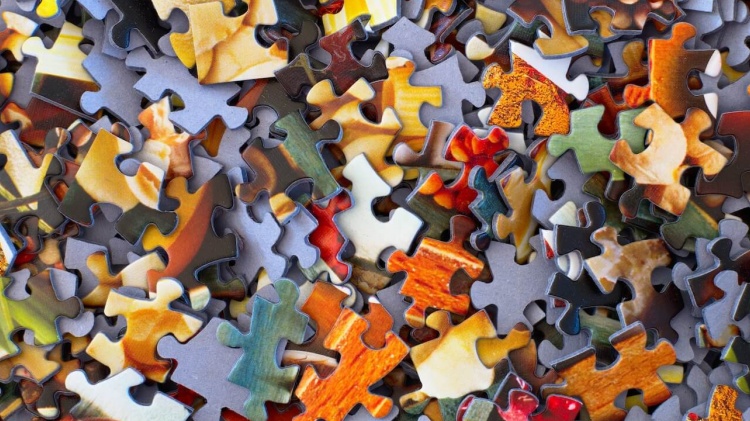
The mental acuity, emotional balance, and attention enhancements puzzles provide can deliver advantages in productivity for work and academics. Studies demonstrate skills strengthened through puzzles like information retention, mental alertness and focus lead to improved work performance.
Research from universities finds students taught using puzzles outperform peers on metrics like assignments completed, information retention, and class engagement. Problem-solving exercises using puzzles produce a stronger understanding of mathematical concepts. Puzzles keep students focused, energized and able to better apply knowledge learned.
In the workplace, short puzzle breaks enhance concentration, motivation and moods among staff. Companies report improved metrics like efficiency, successful task completion and creative problem-solving after puzzle breaks. The refreshed mental state provides cognitive advantages managers are measuring in performance. Puzzle assembly may also build collaborative skills improving teamwork.
So don’t feel guilty indulging in the occasional sudoku or crossword when work feels mentally draining! Puzzle breaks boost acuity and energy to be more efficient in finishing projects.
Puzzles may offer advantages beyond solitary play as well. New research indicates social, collaborative puzzle solving provides cognitive gains over working alone. And shared community among groups of puzzle lovers continues growing.
Studies analyzing groups collaboratively completing jigsaw puzzles found improvements in skills like creative thinking, task organization and teamwork. The collective assembly process stimulated higher overall enjoyment and engagement compared with participants working individually as well. And some research indicates group recall of details in completed puzzles exceeded individual play.
This social advantage of shared challenges may provide cognitive benefits above solitary play. As one researcher summarizes, enjoying puzzles with others makes use “more efficient through collaboration while also becoming more motivated, engaged and happy.”
Online groups and clubs centering around puzzle completion draw members seeking camaraderie and mental challenge. Social jigsawing groups like “Let’s Get Social” report members appreciating shared progress, motivating accountability and meaningful connections puzzle assembly facilitates. The mindful joy and mood enrichment puzzles spark get amplified through group sharing and support.
Hearing personal accounts of how puzzles have changed lives provides a powerful perspective to complement the research. Let’s look at a few examples of individuals discovering mental health through puzzles.
Michelle found herself suffering symptoms of anxiety and depression. Daily negative thoughts interrupted her sleep and made completing work efficiently an immense challenge. On a relative’s advice, she began setting aside 30 minutes a day to focus on logic puzzles. As she described, “Having my mind absorbed in sequencing numbers and unlocking patterns lifted my mood. My thoughts became more focused on solving puzzles than dwelling on stresses.” Over a couple of months, she noticed her anxiety levels decrease, her outlook improved, and her ability to complete tasks returned. “Puzzling became like meditation for me. It gave me small mental victories daily that changed my headspace for the better.”
Jim noticed his memory and visual perception declining in subtle ways in his late 50s. Small episodes of forgetfulness increased, along with difficulty judging distances. On his doctor’s suggestion, he took up jigsaw puzzles to activate cognitive processes protectively. The challenge re-engaged his spatial reasoning and memory in ways simple reading did not. “As I focused for long periods puzzling pieces into place, I could feel my concentration strengthen. Those skills built through puzzling then helped me better plan projects at work.” Regular puzzling sessions gave Jim’s cognition the tuneup needed to get mentally sharp again.
Through stories like these, we recognize power puzzles can provide experiences of mastery, control and social bonding. These mental health benefits ripple, lifting life outlooks and bringing people together through shared challenges.
Many types of puzzles bring cognitive gains and mood-lifting engagement. However, a few specific varieties deliver targeted advantages worth highlighting.
WoodCraft 3D Puzzles also offer significant cognitive benefits and engaging experiences. Like jigsaw puzzles, they require assembling intricate pieces in a specific sequence, enhancing spatial processing and creative thinking. The complexity and detail of WoodCraft 3D Puzzles captivate sustained attention, fostering focus and a rewarding flow state.
Ideal for a range of ages, these puzzles are not just a pastime but a tool for mental enhancement, similar to the benefits provided by jigsaw puzzles, Sudoku, and crossword puzzles. By incorporating WoodCraft 3D Puzzles into your routine, you can enjoy a unique blend of artistic creation and cognitive development.
Jigsaw puzzles rank among the most studied for their wide-ranging mental health benefits. Assembling their interlocking pieces in proper sequence boosts skills from spatial processing to creative thinking. varies Jigsaw puzzles also capture sustained attention, and training focus while delivering a mood-lifting flow state. For the fullest benefits, choose jigsaws ranging from 500-1500 pieces – enough to remain engrossing over many sessions.
Sudoku and similar logic puzzles provide another excellent mind-strengthening option. Their number and pattern decoding gameplay sharpens working memory, attention and reasoning ability. For a creative twist, try patchwork picross puzzles by Madd Capp Games. Their mosaic tiles form pixelated artwork designs once completed, engaging visual-spatial skills uniquely.
Crossword puzzles also challenge cognition effectively while providing a fun vocabulary workout. Over long-term solving, participants report significant improvements in areas like word recollection and reading comprehension. To increase difficulty gradually, subscribe to booklets from publishers like Dell Magazines for daily puzzle doses.
Layer the advantages of these different puzzles by alternating between jigsaw, logic and word puzzles over a week. This puzzle cocktail approach keeps your mind nimble through varied challenges.
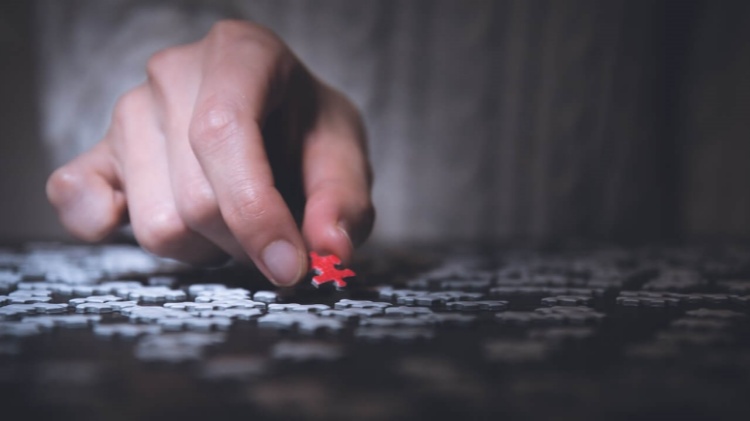
We hope this overview provides convincing evidence for making puzzles a part of healthy adult living. Please share your own stories of discovery and connection through mindful puzzling. Describe favorite puzzle varieties we missed and how long-term engagement has benefited cognition or outlook. Subscribe here by email to stay updated on emerging research in this nascent field. Let’s mutually support healthier, focused minds together through the shared joy of puzzles!
Research literature continues growing, but the case already looks convincing. Puzzles provide a compelling tool for enhancing mental acuity, emotional health and cognitive longevity. As this review summarizes, working through engaging puzzles may:
So don’t hesitate to embrace puzzles as part of a healthy lifestyle. They deliver unique advantages for maintaining mental fitness across our lifespans. Yet beyond the quantitative research, many describe puzzles providing equally meaningful qualitative benefits. Their ability to captivate attention, reduce stress through flow states and bring people together through shared challenges holds significance. Piecing together puzzles mindfully represents integrating fragments into more cohesive wholes -much like the meaning it brings to life.


Imagine a wooden jigsaw puzzle where each piece is more than a part of an image; it’s a chapter in a captivating story waiting to
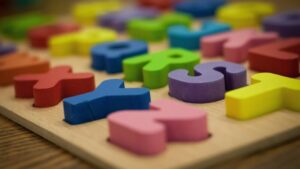
When choosing the right puzzle box(wooden puzzle boxes or paper one) for your toddler, it’s essential to consider the materials’ properties and how they align

Embark on a journey to unravel the nuanced distinctions between two beloved genres of puzzles: plain wooden puzzles and 3d wooden puzzles. In this comprehensive
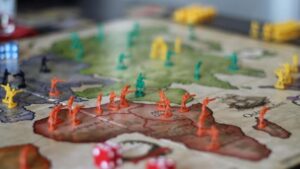
Imagine your wooden jigsaw puzzle not just as a piece to be solved but as an interactive journey that engages all your senses. This guide

Imagine a wooden jigsaw puzzle where each piece is more than a part of an image; it’s a chapter in a captivating story waiting to

When choosing the right puzzle box(wooden puzzle boxes or paper one) for your toddler, it’s essential to consider the materials’ properties and how they align

Embark on a journey to unravel the nuanced distinctions between two beloved genres of puzzles: plain wooden puzzles and 3d wooden puzzles. In this comprehensive
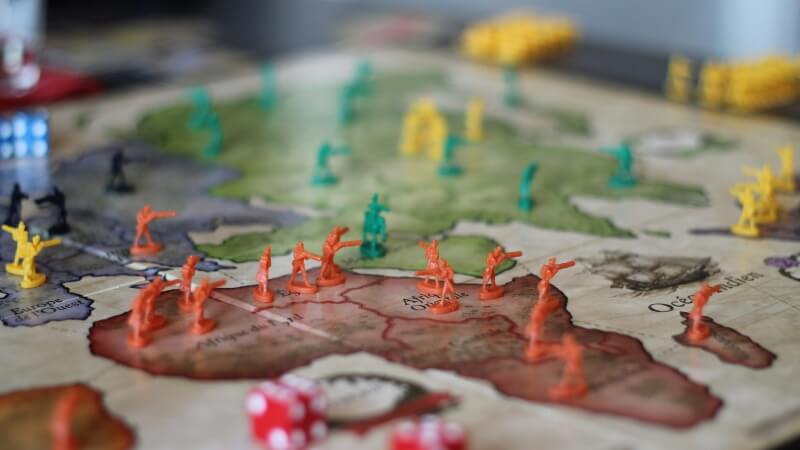
Imagine your wooden jigsaw puzzle not just as a piece to be solved but as an interactive journey that engages all your senses. This guide
Copyright © 2024 woodcraft3dpuzzles. All Rights Reserved.